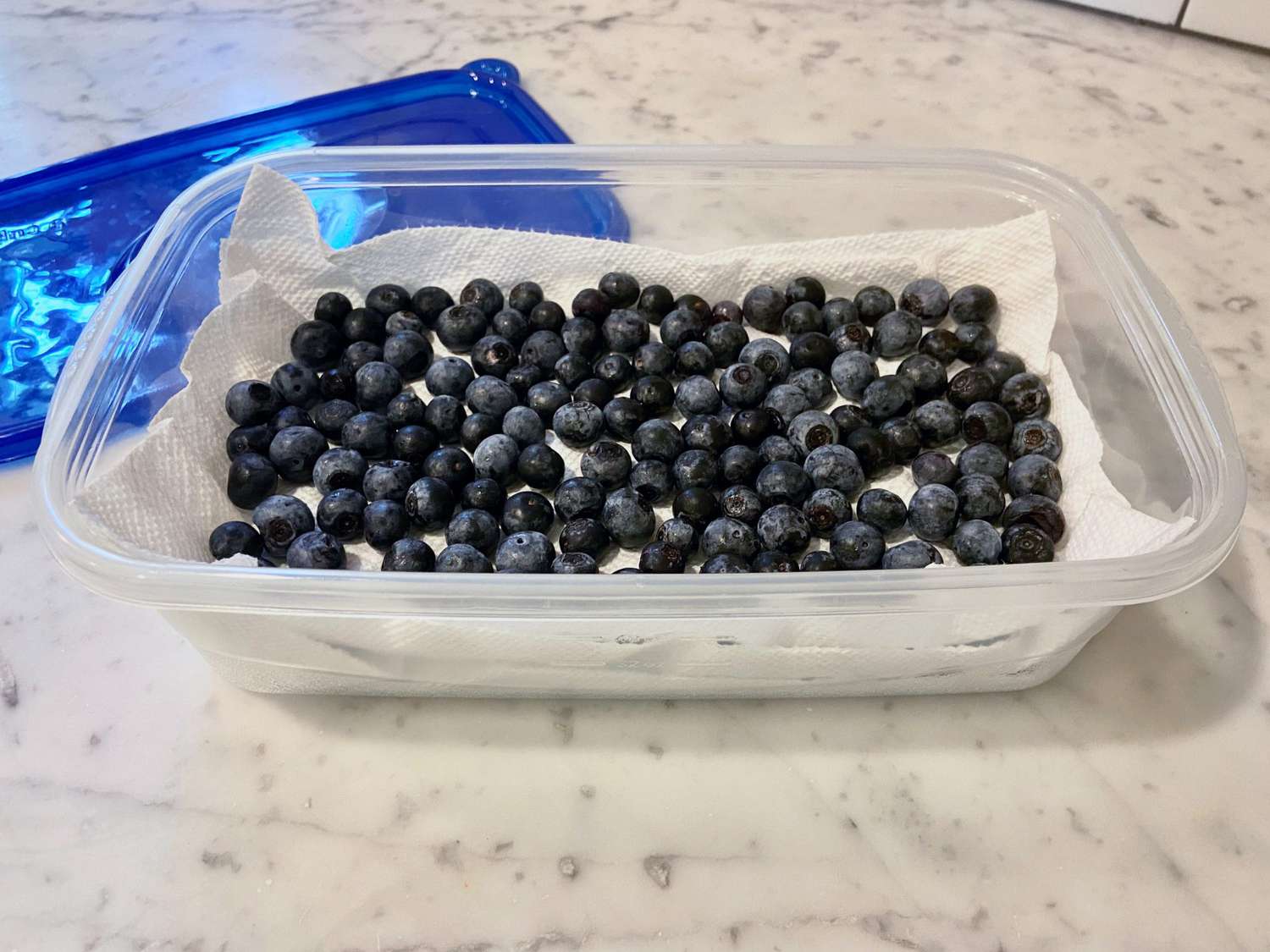

Articles
How To Store Fresh Picked Blueberries
Modified: October 20, 2024
Discover the best techniques for storing freshly picked blueberries in this informative article. Keep your berries fresh and delicious for longer with our expert tips and tricks.
(Many of the links in this article redirect to a specific reviewed product. Your purchase of these products through affiliate links helps to generate commission for Storables.com, at no extra cost. Learn more)
Introduction
Blueberries are delicious and nutritious fruits that are highly sought after during the summer months. Whether you’ve picked them yourself at a local farm or purchased them fresh from the market, proper storage is essential to preserve their flavor, texture, and nutritional value. In this article, we will explore different methods of storing fresh-picked blueberries to ensure they stay fresh and delicious for as long as possible.
Understanding the shelf life of fresh-picked blueberries is crucial for effectively storing them. Blueberries are delicate fruits with a relatively short shelf life compared to some other fruits. On average, fresh blueberries can last for about 5 to 7 days if stored correctly. However, with the right storage techniques, you can extend their lifespan and enjoy their juicy goodness for up to two weeks.
Choosing the right storage container is the first step to ensure the longevity of your fresh-picked blueberries. Opt for containers that are clean, dry, and have good airflow. Avoid using containers that are too tight or have a seal, as this can lead to excess moisture buildup and cause the blueberries to spoil quickly. Instead, go for shallow, breathable containers such as plastic clamshell containers or glass bowls with lids that are loosely covered.
Storing blueberries at room temperature is suitable for short-term storage. If you plan on consuming them within a day or two, leaving them out on the kitchen counter is a viable option. However, ensure that the berries are kept away from direct sunlight, heat sources, and high humidity areas, as these conditions can accelerate the spoilage process.
Refrigeration is the best method for storing fresh-picked blueberries for a longer duration. Before refrigerating, make sure to sort through your blueberries and remove any damaged or moldy ones. Gently rinse them under cold water and pat them dry with a paper towel to remove excess moisture. Transfer the blueberries into a clean, dry container lined with a paper towel or a cloth to absorb any remaining moisture. Seal the container loosely or cover it with a lid to provide some airflow.
Freezing fresh-picked blueberries is an excellent option if you want to preserve them for an extended period, typically up to 12 months. To freeze blueberries, start by rinsing them gently under cold water and patting them dry. Spread them out in a single layer on a baking sheet lined with parchment paper and place the tray in the freezer. Once the berries are frozen solid, transfer them into airtight freezer bags or containers. Label the containers with the freeze date to keep track of their freshness.
Key Takeaways:
- Proper storage is essential for preserving the freshness and flavor of fresh-picked blueberries. Understanding their shelf life and choosing the right storage container are key factors in extending their lifespan.
- Refrigeration and freezing are the best methods for long-term storage of fresh-picked blueberries. Properly rinsing, drying, and storing them in clean, dry containers ensures their optimal freshness and flavor.
Read more: How To Store Fresh Blueberries
Understanding the Shelf Life of Fresh Picked Blueberries
When it comes to enjoying the full flavor and nutritional benefits of fresh-picked blueberries, understanding their shelf life is crucial. Blueberries, like other fruits, have a limited lifespan after they are harvested. However, with proper storage techniques, you can extend their freshness and make them last longer.
The shelf life of fresh-picked blueberries can vary depending on several factors, such as the quality of the berries, how they were handled after picking, and the storage conditions. On average, fresh blueberries can last for about 5 to 7 days if stored correctly. However, with optimal storage methods, you can extend this shelf life to up to two weeks.
One of the primary factors that contribute to the deterioration of blueberries is their high water content. This moisture makes blueberries more susceptible to mold and bacterial growth, which can lead to spoilage. Therefore, it is essential to handle fresh-picked blueberries with care and ensure they are stored in the right conditions to maintain their quality for as long as possible.
Another crucial consideration is the ripeness of the berries at the time of picking. Blueberries that are at their peak ripeness have a shorter shelf life compared to slightly underripe ones. This is because ripe blueberries are softer and more delicate, making them prone to bruising and quicker spoilage. If possible, try to pick blueberries that are slightly underripe to give you more time before they start to deteriorate.
It’s important to note that blueberries that have been commercially harvested and purchased from the market may have a shorter shelf life compared to freshly picked ones. This is because commercially harvested blueberries often go through a series of handling and transportation processes, which can impact their freshness and longevity.
However, whether you’ve picked them yourself or purchased them, the storage conditions play a significant role in determining the shelf life of blueberries. Temperature, humidity, and airflow are essential factors to consider when storing fresh-picked blueberries.
High temperatures and humidity can accelerate the ripening process of blueberries and promote the growth of bacteria and molds. This can lead to a shortened shelf life and spoilage. Therefore, it is best to store blueberries in a cool and dry environment to maintain their freshness for longer.
Proper airflow is also crucial for the longevity of blueberries. Lack of airflow can cause excess moisture buildup and create a favorable environment for spoilage. On the other hand, too much airflow can cause the berries to dry out and lose their flavor. Finding the right balance is essential for optimal storage.
By understanding the shelf life of fresh-picked blueberries and implementing proper storage techniques, you can maximize the lifespan of these delicious fruits. In the following sections, we will explore different methods of storing blueberries to help you keep them fresh and flavorful for as long as possible.
Choosing the Right Storage Container
When it comes to storing fresh-picked blueberries, choosing the right storage container is vital to preserve their quality and extend their shelf life. The container you use should provide adequate airflow and protect the berries from excess moisture and damage.
Here are a few considerations to keep in mind when selecting a storage container for your blueberries:
- Cleanliness: Ensure that the container you choose is clean and free from any residues or contaminants. Dirty containers can introduce bacteria or molds, which can spoil your blueberries more quickly.
- Dryness: Moisture is the enemy of fresh-picked blueberries. Opt for a dry container that does not have any built-in moisture retention features. Excess moisture can lead to mold growth and spoilage.
- Airflow: Blueberries need proper airflow to remain fresh. Avoid using containers with airtight seals as they can trap moisture and cause the berries to spoil faster. Instead, opt for containers that allow for some airflow, such as plastic clamshell containers or glass bowls with loosely-fitting lids.
- Size and Shape: Consider the size and shape of the container based on the quantity of blueberries you have. It’s generally recommended to store blueberries in shallow containers to prevent them from getting crushed under their weight. This also allows for better airflow around the berries.
- Material: Choose a container made of food-safe material, such as BPA-free plastic or glass. Avoid containers made of reactive materials that can alter the taste or quality of the blueberries.
It’s important to note that storing blueberries in their original packaging may not be the best option for long-term storage. While the packaging that they come in from the store may seem convenient, it is often not designed for extended freshness. The containers used in commercial packaging may not provide adequate airflow or may be too restrictive, leading to a shorter shelf life.
If you do choose to use the original packaging, make sure to transfer the blueberries to a different container if you intend to store them for an extended period. Look for a clean, dry container that meets the criteria mentioned above, and gently transfer the berries to ensure they are not damaged during the process.
By choosing the right storage container, you can maintain the freshness and quality of your fresh-picked blueberries for a longer duration. In the next section, we will explore different storage methods, including room temperature storage, refrigeration, and freezing, to help you make the most of your blueberry harvest.
Storing Blueberries at Room Temperature
Storing blueberries at room temperature is a suitable option if you plan on consuming them within a day or two of picking or purchasing. However, it’s important to ensure that the room conditions are optimal for preserving the freshness and quality of the berries.
Here are some guidelines for storing blueberries at room temperature:
- Keep away from heat sources and direct sunlight: Blueberries are sensitive to heat and sunlight, which can accelerate the ripening process and cause them to spoil quickly. Store the berries in a cool area away from heat sources like stoves, ovens, or direct sunlight.
- Avoid high humidity: Excessive humidity can lead to moisture buildup, increasing the chances of mold growth and spoilage. It’s best to store blueberries in a dry environment with moderate humidity levels.
- Open container or loosely cover: To allow for proper airflow, it’s recommended to store blueberries in an open container or loosely cover them with a breathable lid or mesh. This helps prevent moisture buildup while still providing some protection from dust and insects.
- Inspect and remove any spoiled berries: Regularly check your blueberries for any signs of spoilage, such as mold or mushy texture. If you find any spoiled berries, remove them immediately to prevent the spread of mold to the rest of the fruit.
- Consume within a day or two: Blueberries stored at room temperature have a shorter shelf life compared to refrigerated or frozen ones. To enjoy the full freshness and flavor of the berries, it’s best to consume them within a day or two of storing them at room temperature.
Keep in mind that storing blueberries at room temperature is not ideal for long-term preservation. If you have a large quantity of blueberries or want to extend their shelf life, it’s recommended to utilize other storage methods, such as refrigeration or freezing, which we will explore in the following sections.
By following these guidelines, you can enjoy the juicy goodness of room temperature blueberries for a short period. However, if you anticipate not consuming the blueberries within a day or two, it’s advisable to refrigerate them to maintain their freshness. In the next section, we will discuss the best practices for refrigerating fresh-picked blueberries.
Refrigerating Fresh Blueberries
Refrigeration is the most effective method for storing fresh-picked blueberries for an extended period. By properly refrigerating blueberries, you can significantly prolong their shelf life and maintain their freshness, flavor, and nutritional value.
Here are the steps to refrigerate fresh blueberries:
- Sort and remove damaged berries: Before refrigerating, carefully sort through your blueberries and remove any berries that are damaged, bruised, or moldy. Discarding damaged berries helps prevent the spread of spoilage to the rest of the batch.
- Gently rinse the blueberries: Rinse the blueberries gently under cold running water to remove any dirt or debris. Avoid soaking the berries as excessive water exposure can lead to moisture buildup and faster spoilage.
- Pat the blueberries dry: After rinsing, gently pat the blueberries dry with a paper towel or a clean cloth. Removing excess moisture helps prevent the growth of mold and keeps the berries fresh for longer.
- Line the storage container: Use a clean, dry container or airtight plastic bag to store the blueberries. Line the container with a paper towel or a cloth to absorb any residual moisture and provide a protective layer.
- Transfer the blueberries: Place the dry blueberries into the lined container or bag. Avoid overcrowding the container, as this can cause the berries to become squished and spoil more quickly.
- Loosely seal or cover the container: Seal the container or lightly cover it with a lid to provide some airflow. This allows the blueberries to breathe and prevents excess moisture buildup.
- Store in the refrigerator: Place the container of blueberries in the refrigerator, ideally in the main compartment and not the door. The temperature of the refrigerator should be set between 32°F (0°C) and 40°F (4°C) for optimal storage conditions.
- Handle with care: When retrieving blueberries from the refrigerator, handle them gently to prevent bruising and damage. Avoid leaving them out at room temperature for an extended period to maintain their freshness.
By following these steps, you can store fresh blueberries in the refrigerator for up to two weeks. It’s important to remember that blueberries stored in the refrigerator may develop a frost-like appearance called “chill injury.” This harmless, white discoloration occurs when the berries are exposed to near-freezing temperatures. While it affects their appearance, it does not affect their taste or quality.
Whether you plan to use the blueberries for snacking, baking, or adding to your favorite dishes, refrigeration helps preserve their freshness and juiciness. However, if you want to store blueberries for a longer period, freezing is the preferred method. In the next section, we will discuss how to freeze fresh-picked blueberries for extended storage.
Store fresh picked blueberries in the refrigerator in a shallow container, unwashed, and covered with a paper towel to absorb any excess moisture. Wash them just before eating to prolong their shelf life.
Read more: How To Store Fresh Picked Lettuce
Freezing Fresh Picked Blueberries
Freezing is an excellent method for preserving the freshness and flavor of fresh-picked blueberries for an extended period. By freezing blueberries, you can enjoy their deliciousness throughout the year, even when they are out of season. Follow these steps to freeze your blueberries:
- Sort and rinse the blueberries: Before freezing, carefully sort through your blueberries and remove any damaged or moldy berries. Rinse the blueberries gently under cold running water to remove any dirt or debris.
- Pat the blueberries dry: After rinsing, gently pat the blueberries dry with a paper towel or a clean cloth. Make sure they are completely dry before proceeding to the next step.
- Spread in a single layer on a baking sheet: Arrange the dry blueberries in a single layer on a baking sheet lined with parchment paper. This allows the berries to freeze individually, preventing them from clumping together.
- Pre-freeze the blueberries: Place the baking sheet with the blueberries in the freezer and let them pre-freeze for about 1 to 2 hours. Pre-freezing prevents the blueberries from sticking together and forming a solid mass.
- Transfer to freezer bags or containers: Once pre-frozen, transfer the blueberries into airtight freezer bags or containers. Squeeze out any excess air from the bags and seal them tightly. If using containers, leave a little space at the top to allow for slight expansion during freezing.
- Label and date the bags or containers: It’s essential to label the freezer bags or containers with the freeze date. This helps you keep track of their freshness and ensure you use the oldest ones first when it comes time to defrost them.
- Store in the freezer: Place the properly sealed bags or containers in the freezer, ideally in the coldest part of your freezer. Maintain a temperature of 0°F (-18°C) or below for optimal storage conditions.
Frozen blueberries can be stored for up to 12 months, retaining their flavor and nutritional value. They are perfect for adding to smoothies, baking, making jams, or simply enjoying as a frozen treat.
When the time comes to use the frozen blueberries, there’s no need to thaw them before incorporating them into recipes. You can add them directly to smoothies or baked goods while they are still frozen. However, if you prefer to thaw them for other uses, follow the proper thawing process, which we will explore in the next section.
By freezing your fresh-picked blueberries, you can savor their delightful taste and nutritional benefits throughout the year. However, be sure to follow the recommended storage time to maintain their quality. Now, let’s move on to the proper thawing process for frozen blueberries.
Properly Thawing Frozen Blueberries
When it comes to thawing frozen blueberries, it’s important to follow the proper methods to ensure they retain their texture and flavor. While you can use frozen blueberries directly in some recipes, thawing them may be necessary for certain dishes or if you prefer a softer texture. Here’s how you can properly thaw frozen blueberries:
- Refrigerator thawing: The best and safest way to thaw frozen blueberries is to transfer them from the freezer to the refrigerator. Place the frozen blueberries in a bowl or airtight container and let them thaw slowly in the refrigerator overnight or for approximately 8 to 12 hours. Thawing in the refrigerator helps the blueberries retain their shape and prevents the formation of excess moisture.
- Room temperature thawing: If you are in a rush or need to use the blueberries immediately, you can opt for room temperature thawing. Take the desired amount of frozen blueberries and place them in a sealed plastic bag. Submerge the bag in a bowl of cold water and let it sit for about 30 minutes to 1 hour, or until the blueberries have thawed. Make sure to change the water periodically to prevent it from becoming too warm.
- Microwave thawing: Microwaving is a fast thawing option, but it should be done with caution to avoid cooking the blueberries. Place the desired amount of frozen blueberries in a microwave-safe bowl and microwave them in short bursts of 15-30 seconds on the defrost setting or at a low power level. Stir the blueberries between each burst to ensure even thawing. Be careful not to overheat them, as this can cause the blueberries to become mushy.
Note: It’s important to consume thawed blueberries promptly. Once they are thawed, the texture and quality of the berries can deteriorate quickly. If you do not use all the thawed blueberries, you can store them in the refrigerator for a day or two.
Thawed blueberries are perfect for adding to yogurt, oatmeal, pancakes, or for making sauces, jams, and desserts. You can also use them in baking recipes after thawing, but be aware that they may release more moisture than fresh blueberries, so adjust your recipe accordingly.
By following these thawing methods, you can enjoy the versatility of frozen blueberries in your favorite recipes while maintaining their delicious taste. In the next section, we will share some additional tips for maintaining freshness and answer some frequently asked questions about storing fresh-picked blueberries.
Tips for Maintaining Freshness
To prolong the freshness and optimize the shelf life of fresh-picked blueberries, it’s essential to follow these tips and best practices:
- Handle with care: Blueberries are delicate fruits, so handle them gently to avoid bruising and damage. Rough handling can accelerate their spoilage process.
- Sort and remove damaged berries: Regularly sort through your blueberries and remove any berries that are damaged, moldy, or showing signs of spoilage. This prevents the spread of spoilage to the rest of the batch.
- Store unwashed until ready to use: Avoid washing blueberries before storing them. Excess moisture can lead to the growth of mold and spoilage. Rinse them only when you are ready to consume or use them in recipes.
- Store in the coldest part of the refrigerator: Place your blueberries in the coldest section of the refrigerator, typically the main compartment. This helps maintain a consistent temperature and extends their shelf life.
- Do not wash before freezing: If you’re planning to freeze your blueberries, do not wash them beforehand. Washing can cause excess moisture and make the berries stick together when frozen.
- Label and date freezer bags or containers: When freezing blueberries, always label the bags or containers with the freeze date. This helps you keep track of their freshness and ensure you use the oldest ones first.
- Do not thaw and refreeze: Once blueberries are thawed, it’s not recommended to refreeze them. Thawed and refrozen berries may lose their texture and flavor and can be more prone to spoilage.
- Consume within the recommended storage time: Blueberries have a limited shelf life even with proper storage. It’s best to consume them within the recommended storage time to enjoy their optimal freshness and taste.
By following these tips, you can enhance the freshness and longevity of your fresh-picked blueberries. Proper handling and storage practices are key to preserving their quality and ensuring that you can enjoy these delicious and nutritious berries for longer periods.
Now, let’s address some frequently asked questions about storing fresh-picked blueberries.
Frequently Asked Questions
1. How long do fresh-picked blueberries last?
Fresh-picked blueberries can last for about 5 to 7 days if stored properly. However, with the right storage techniques, you can extend their shelf life to up to two weeks.
2. Can I store blueberries at room temperature?
Storing blueberries at room temperature is suitable for short-term storage if you plan on consuming them within a day or two. Make sure to keep them away from heat sources, direct sunlight, and high humidity areas.
3. What is the best way to refrigerate fresh blueberries?
To refrigerate fresh blueberries, sort and remove any damaged berries, rinse them gently, pat them dry, and store them in a clean, dry container or bag lined with a paper towel. Keep the container loosely covered and store in the refrigerator at a temperature between 32°F (0°C) and 40°F (4°C).
4. How long can I freeze fresh-picked blueberries?
Fresh-picked blueberries can be frozen for up to 12 months if stored properly. Make sure to transfer the blueberries to airtight freezer bags or containers, label them with the freeze date, and store them in the coldest part of your freezer.
5. How do I thaw frozen blueberries?
The recommended methods for thawing frozen blueberries are refrigerator thawing, room temperature thawing, or microwaving in short bursts at a low power level. Thawed blueberries should be used promptly and not refrozen.
6. Can I freeze blueberries without washing them?
Yes, it’s best to freeze blueberries without washing them. Washing the berries before freezing can result in excess moisture and clumping when frozen. Rinse them only when you’re ready to use or thaw them.
7. How can I tell if blueberries are no longer fresh?
Signs that blueberries are no longer fresh include mold growth, a slimy texture, shriveling, or an off smell. It’s recommended to discard any blueberries that show these signs of spoilage.
These are some commonly asked questions about storing fresh-picked blueberries. By following the proper storage techniques and handling guidelines, you can maximize the freshness and enjoy the delightful taste of blueberries throughout the year.
Now, let’s conclude our article on storing fresh-picked blueberries.
Read more: How To Store Fresh Picked Basil
Conclusion
Proper storage is crucial when it comes to preserving the freshness, flavor, and nutritional value of fresh-picked blueberries. Whether you’ve picked them yourself or purchased them from the market, following the right storage techniques can extend their shelf life and ensure that you can enjoy their deliciousness for longer periods.
Understanding the shelf life of fresh-picked blueberries is the first step in effective storage. On average, blueberries can last for about 5 to 7 days, but with the right methods, their freshness can be extended up to two weeks.
Choosing the right storage container is essential to protect the blueberries from excess moisture and damage. Opt for clean, dry containers that provide good airflow. Avoid containers that are too tight or airtight, as they can lead to mold growth.
Storing blueberries at room temperature is suitable for short-term storage if you plan to consume them within a day or two. However, refrigeration is the best method for longer-term storage. Properly rinse and dry the blueberries before refrigerating them, and store them in a clean, dry container with some airflow.
If you want to store blueberries for an extended period, freezing is the preferred method. Spread the blueberries in a single layer on a baking sheet, pre-freeze them, and then transfer them to airtight freezer bags or containers. Properly thaw frozen blueberries in the refrigerator, room temperature, or defrost them in the microwave as needed.
Throughout the storage process, it’s important to handle blueberries with care, remove any damaged berries, and maintain cleanliness. Be mindful of the recommended storage times and consume or use the blueberries within the specified period for optimal freshness.
By following these guidelines, you can enjoy the delightful taste and numerous health benefits of fresh-picked blueberries year-round. Whether you choose to enjoy them fresh, refrigerated, or frozen, properly storing blueberries ensures that they retain their flavors and nutritional value, enhancing your culinary experiences and well-being.
So, the next time you have a harvest of fresh-picked blueberries, remember these storage tips and make the most of their deliciousness and versatility. Enjoy the bounty of this incredible fruit in your favorite recipes, knowing that you have preserved their freshness and can savor their goodness for as long as possible.
Frequently Asked Questions about How To Store Fresh Picked Blueberries
Was this page helpful?
At Storables.com, we guarantee accurate and reliable information. Our content, validated by Expert Board Contributors, is crafted following stringent Editorial Policies. We're committed to providing you with well-researched, expert-backed insights for all your informational needs.
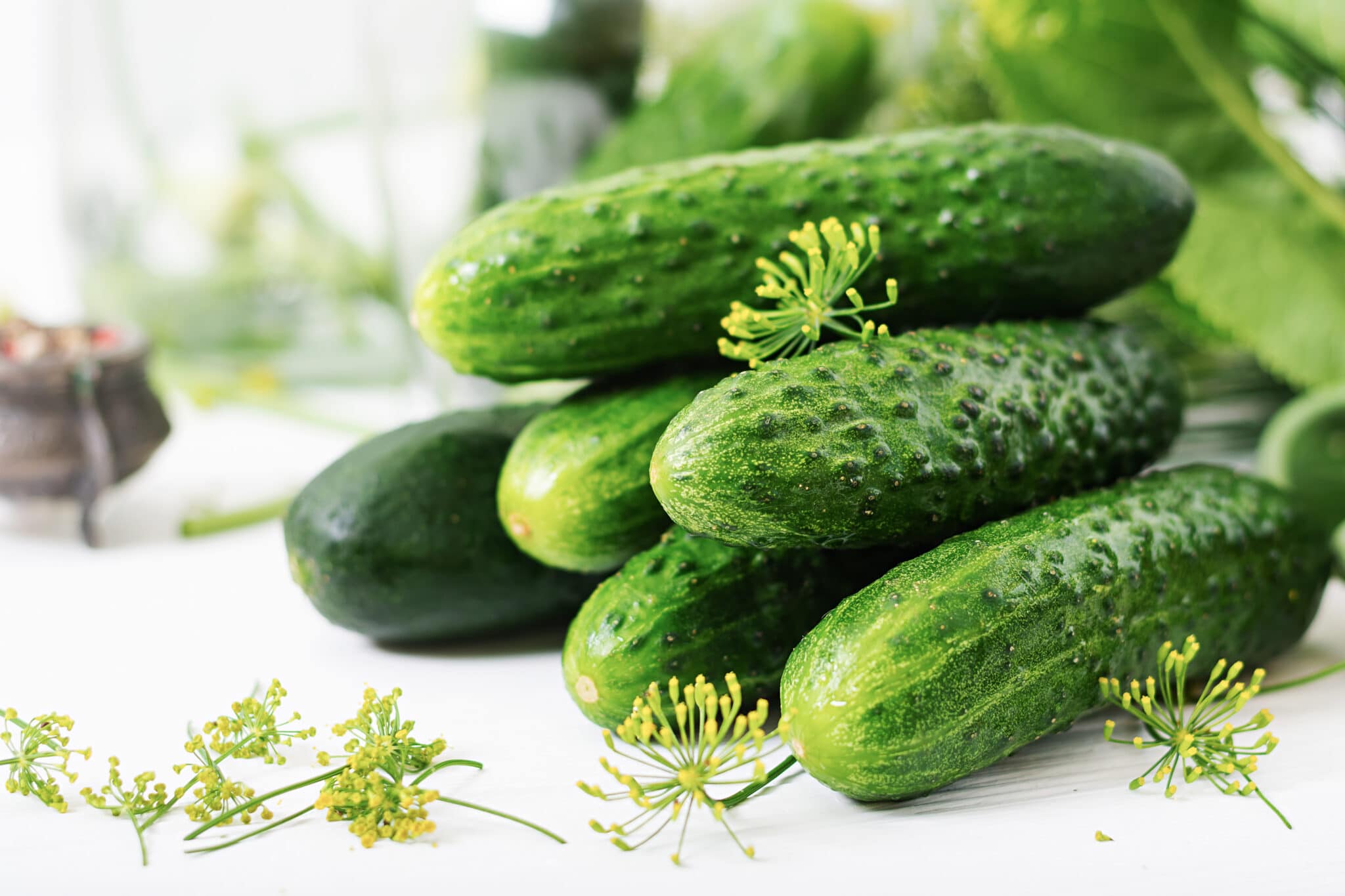
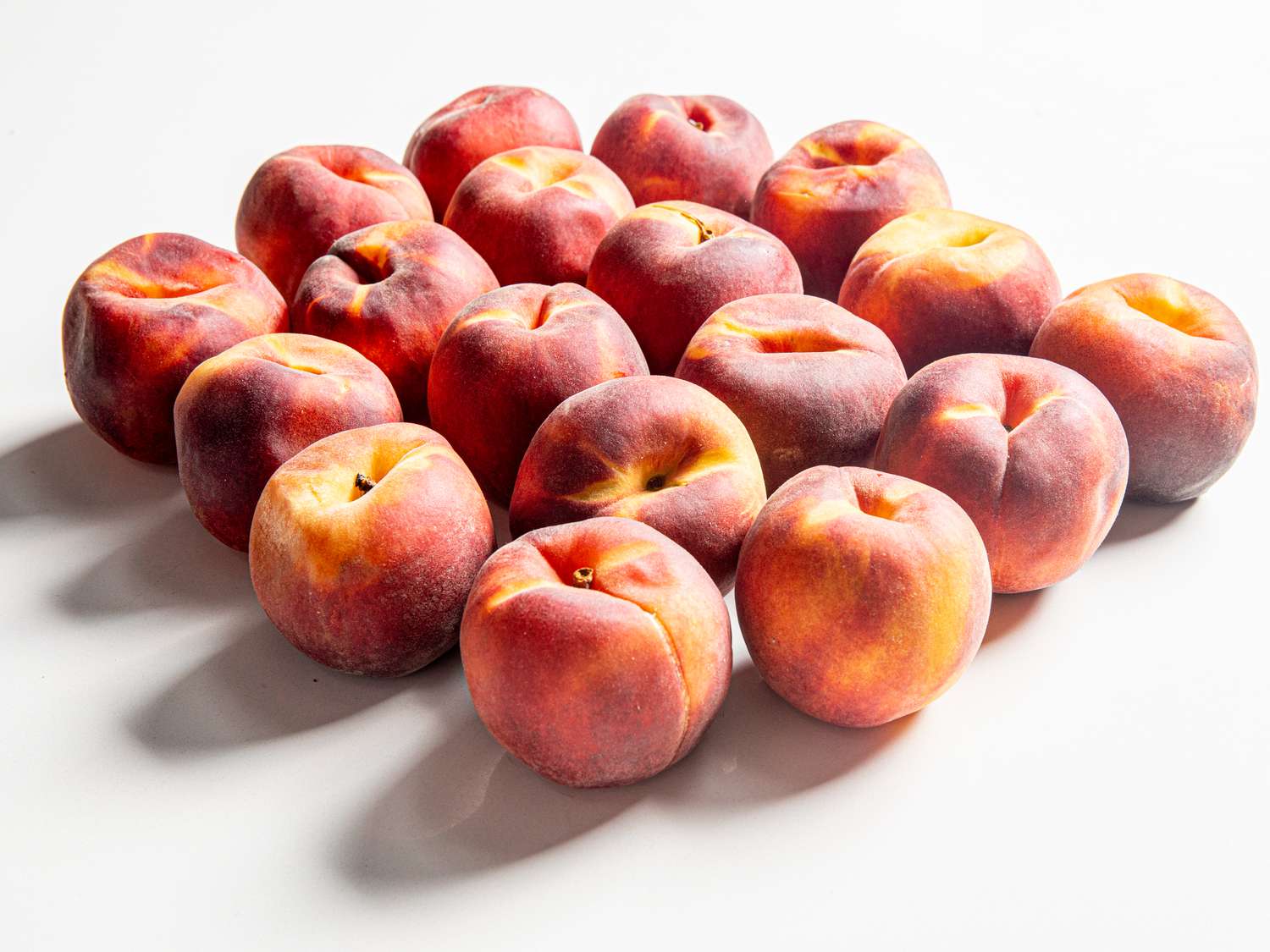
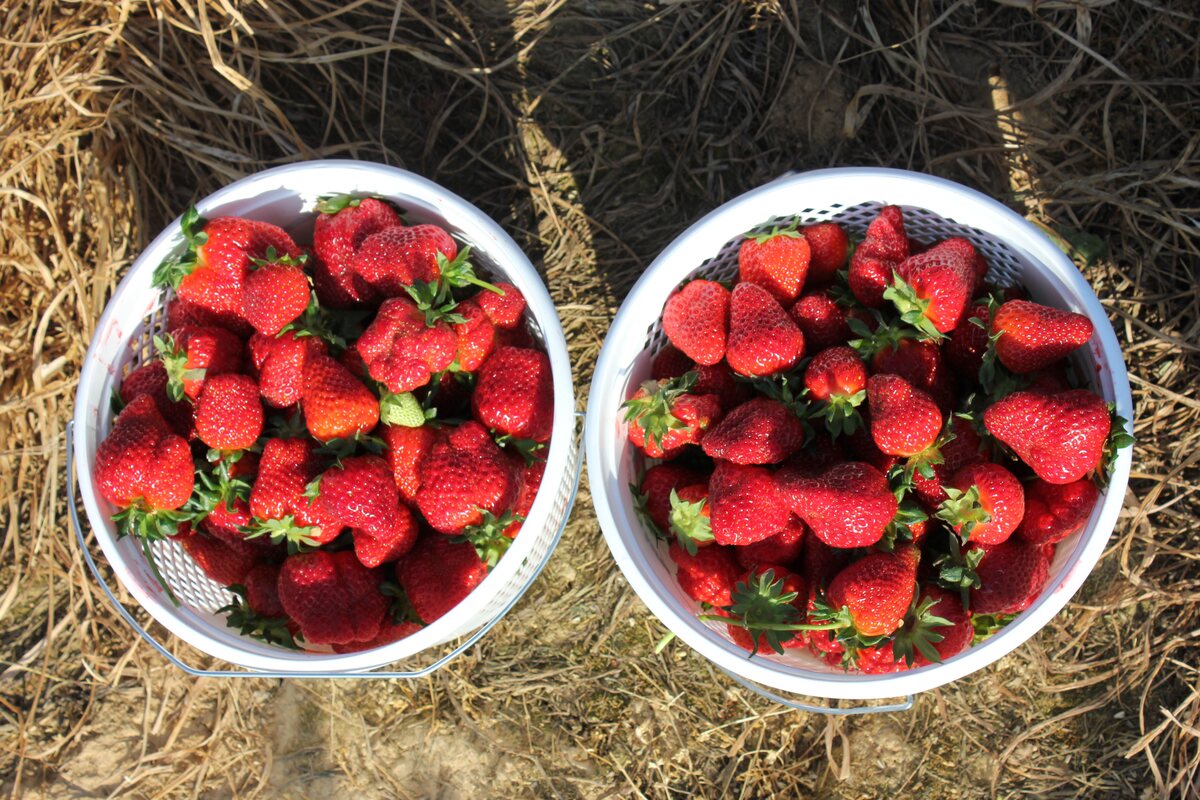
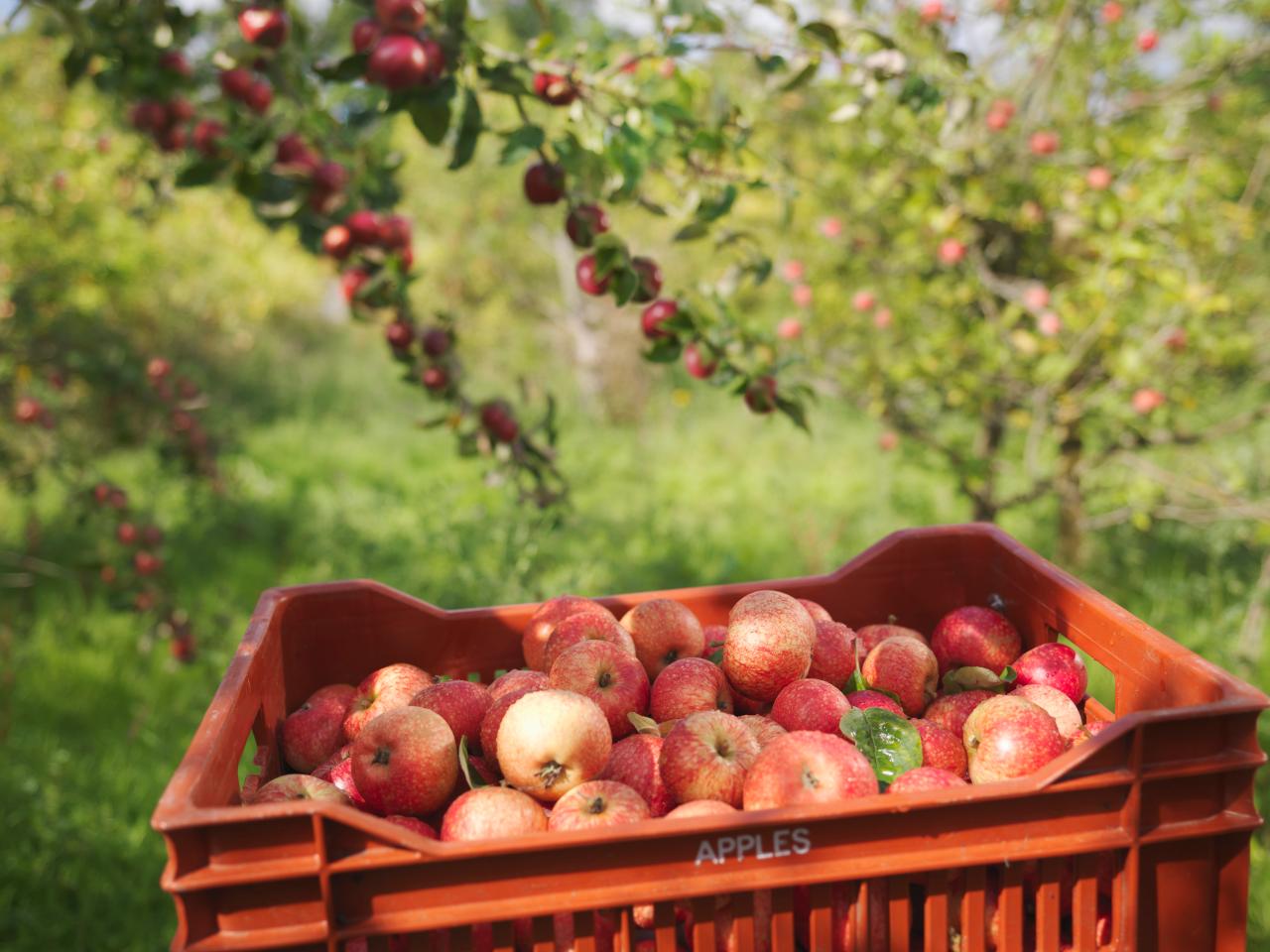


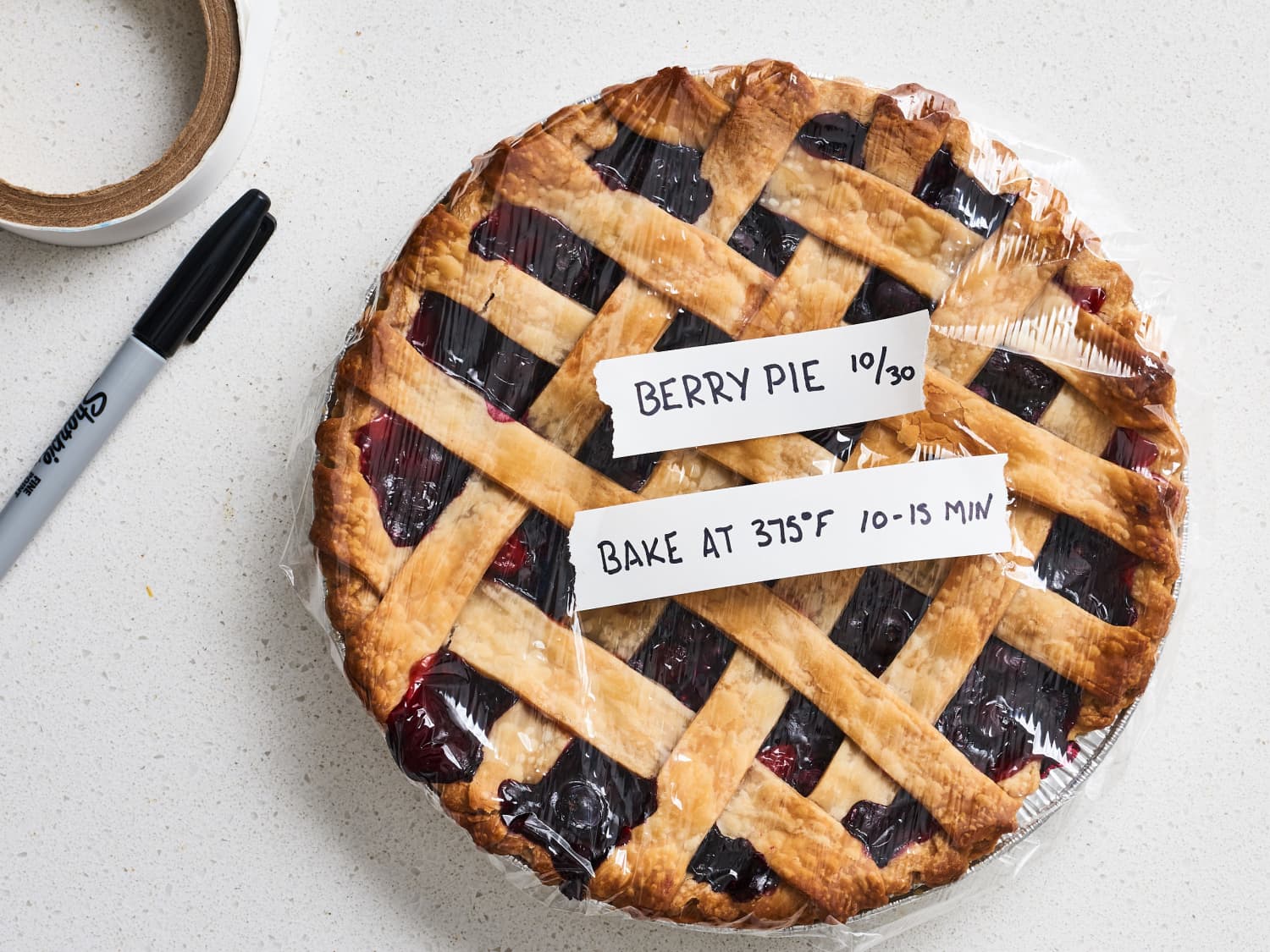
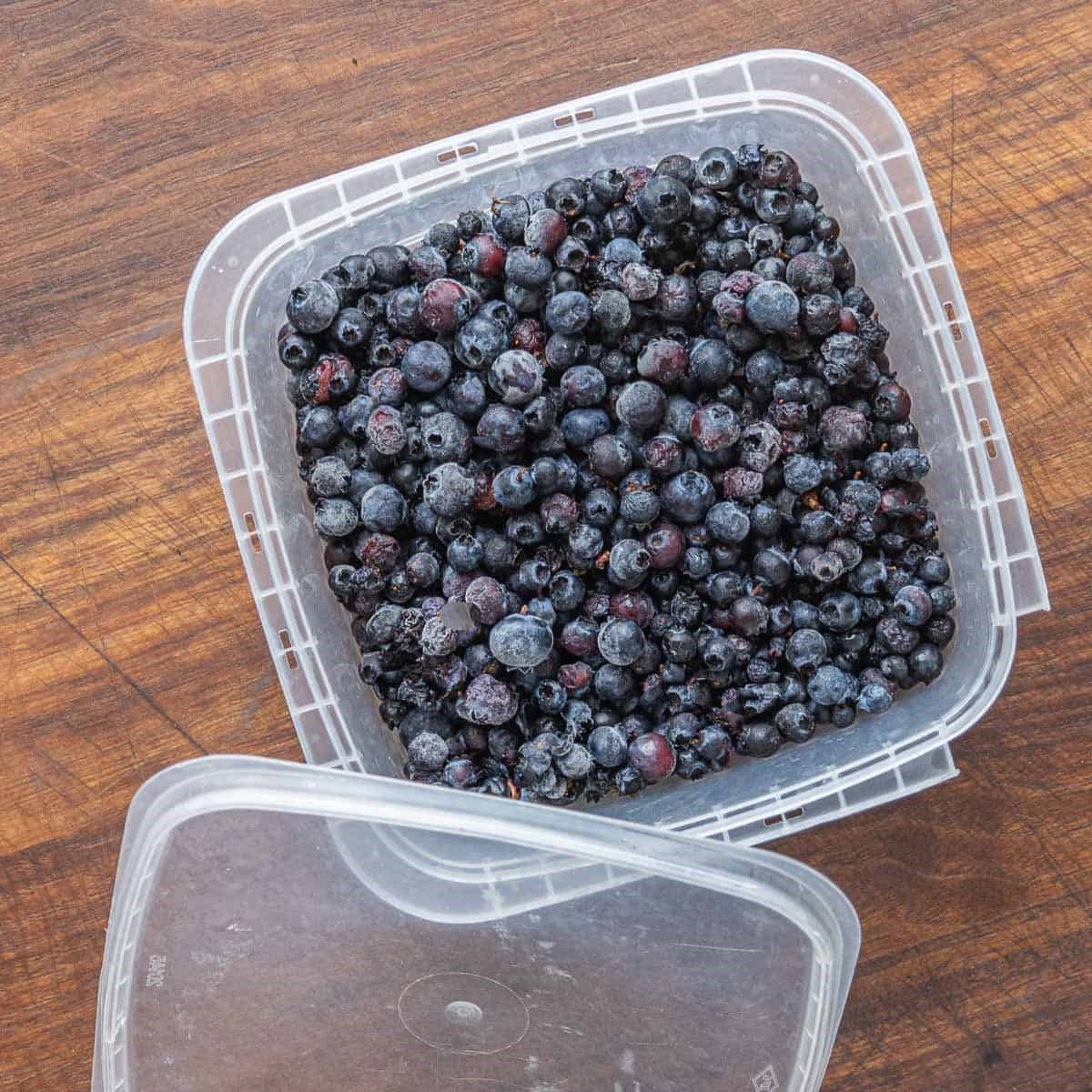
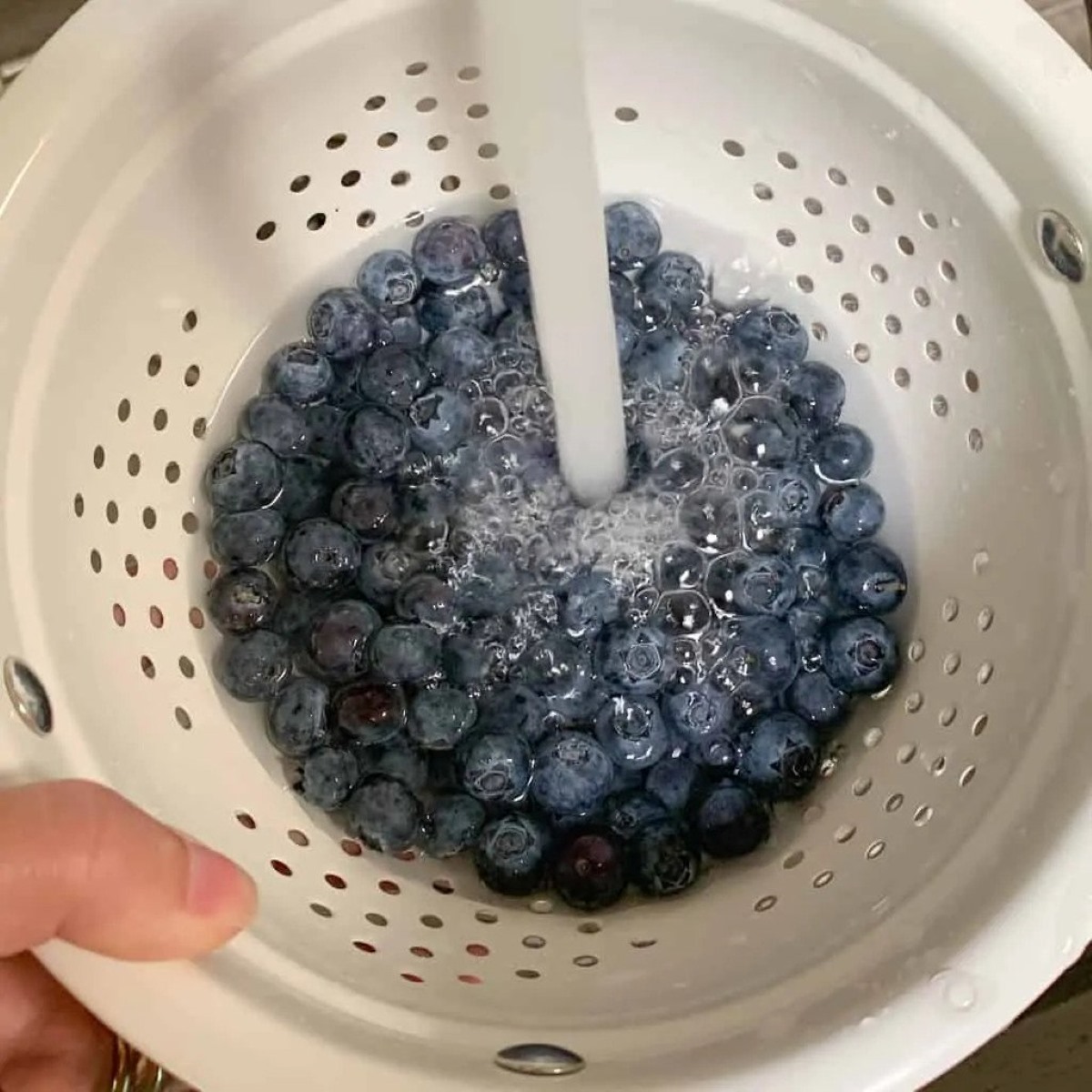

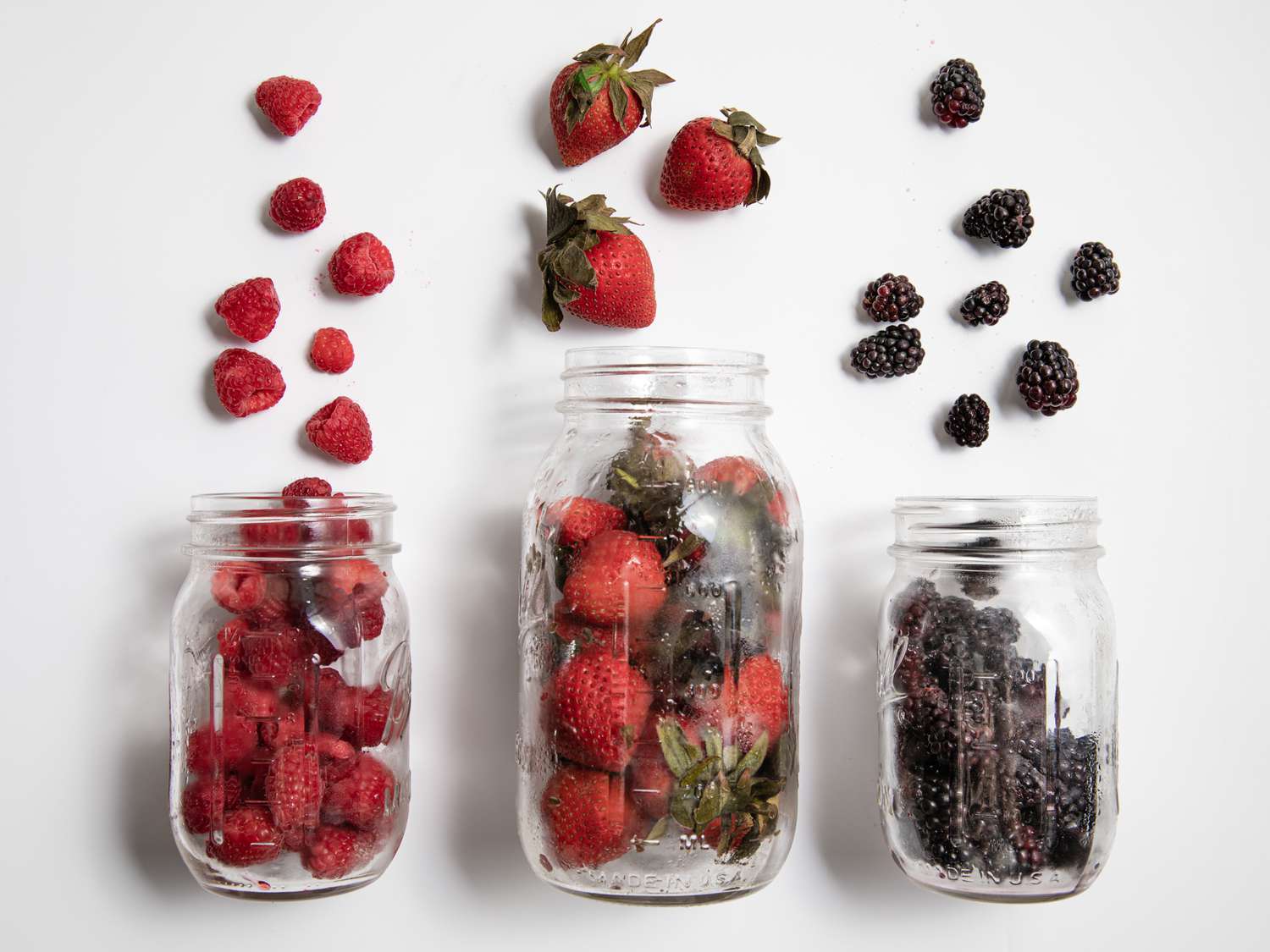
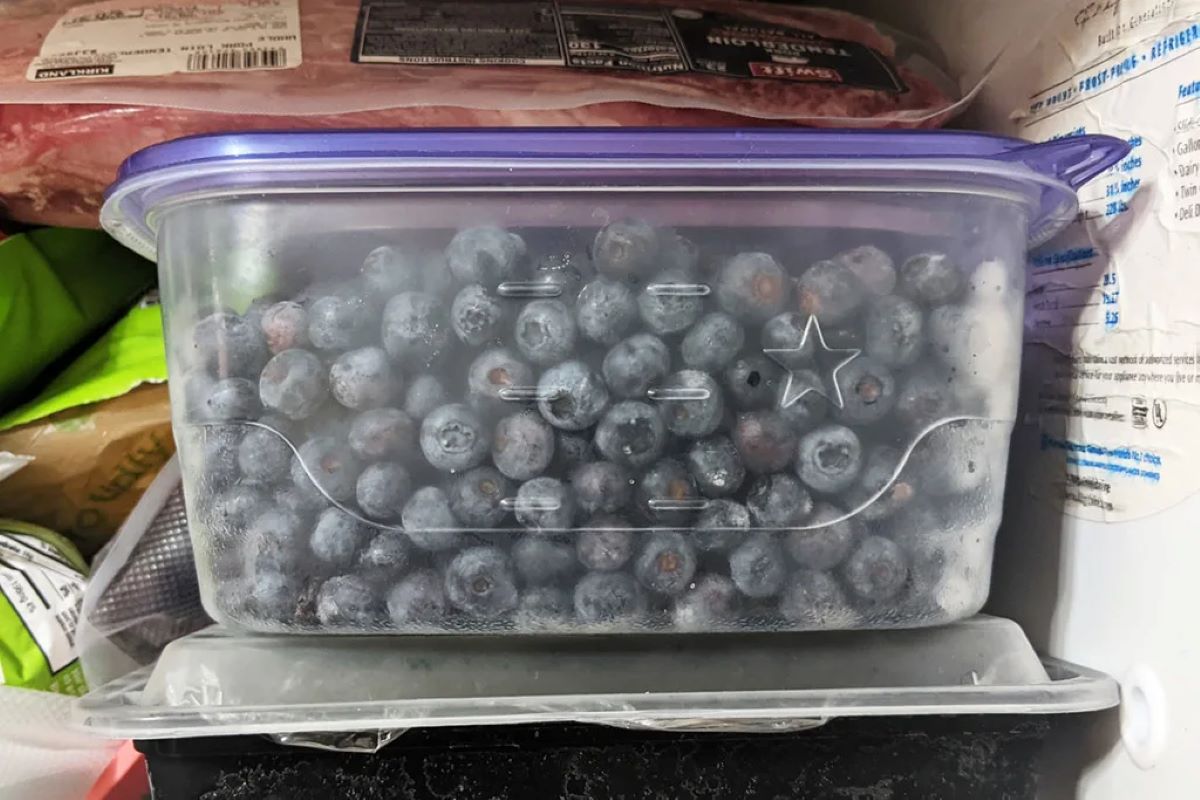
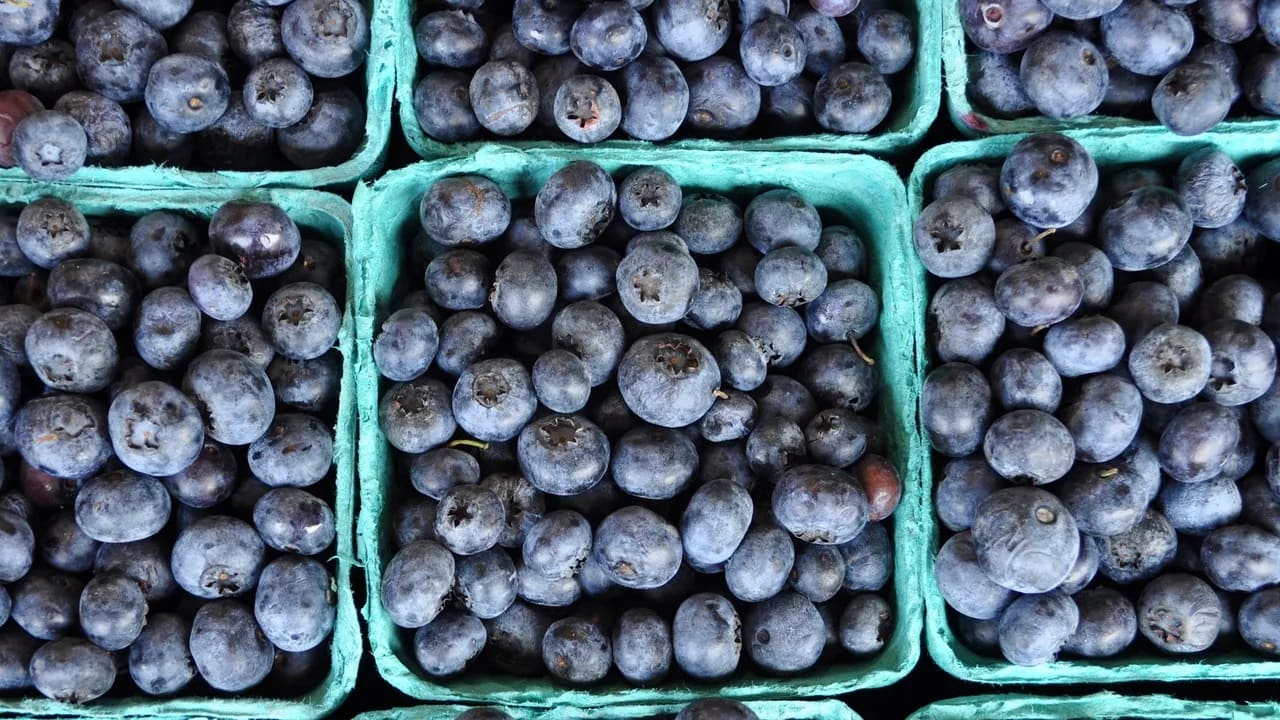

0 thoughts on “How To Store Fresh Picked Blueberries”